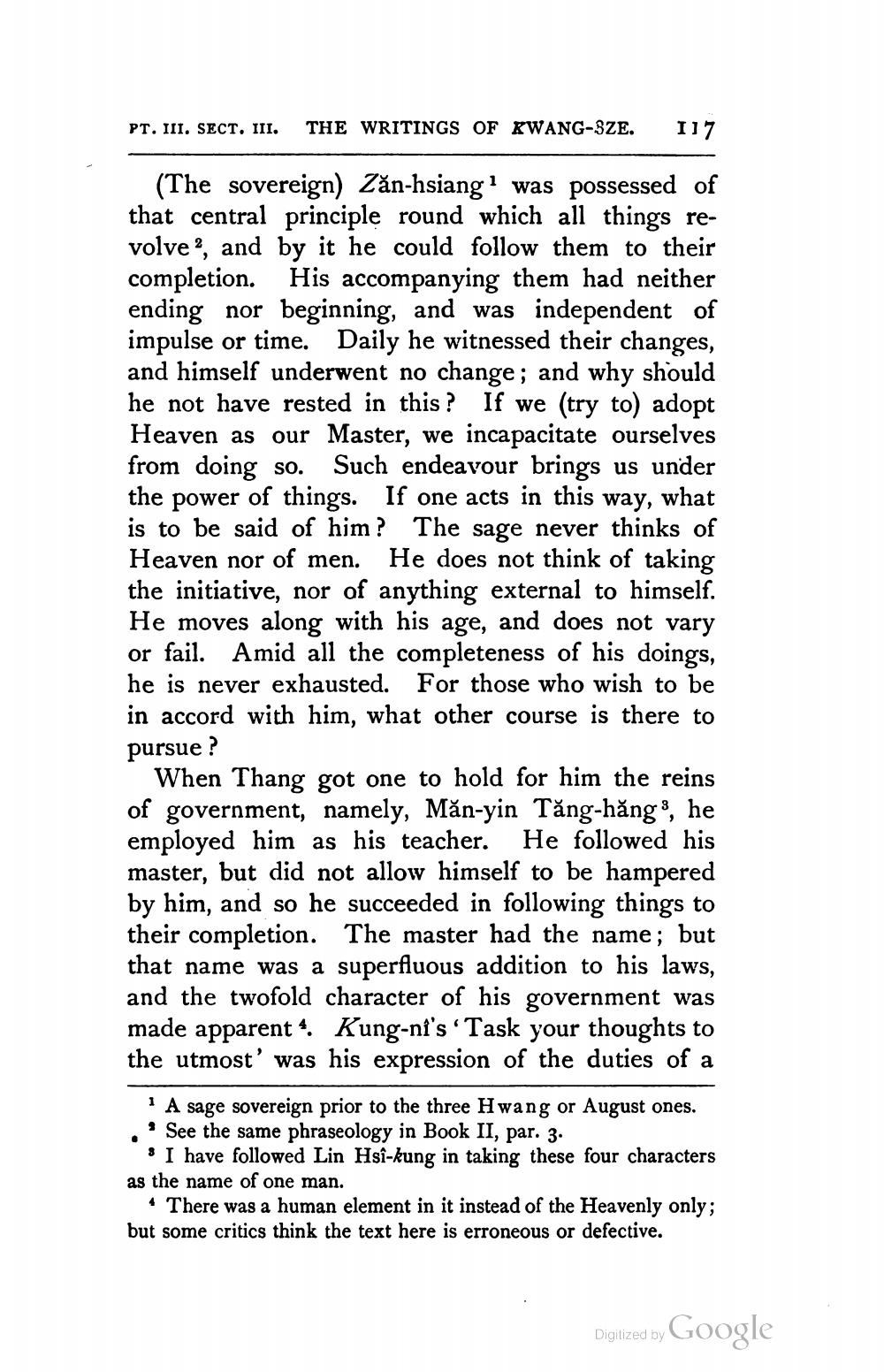________________
PT. III. SECT. III.
THE WRITINGS OF KWANG-SZE.
117
(The sovereign) Zăn-hsiang? was possessed of that central principle round which all things revolve?, and by it he could follow them to their completion. His accompanying them had neither ending nor beginning, and was independent of impulse or time. Daily he witnessed their changes, and himself underwent no change; and why should he not have rested in this ? If we (try to) adopt Heaven as our Master, we incapacitate ourselves from doing so. Such endeavour brings us under the power of things. If one acts in this way, what is to be said of him? The sage never thinks of Heaven nor of men. He does not think of taking the initiative, nor of anything external to himself. He moves along with his age, and does not vary or fail. Amid all the completeness of his doings, he is never exhausted. For those who wish to be in accord with him, what other course is there to pursue ?
When Thang got one to hold for him the reins of government, namely, Măn-yin Tăng-hăng, he employed him as his teacher. He followed his master, but did not allow himself to be hampered by him, and so he succeeded in following things to their completion. The master had the name; but that name was a superfluous addition to his laws, and the twofold character of his government was made apparent 4. Kung-ni's 'Task your thoughts to the utmost' was his expression of the duties of a
"A sage sovereign prior to the three Hwang or August ones. .' See the same phraseology in Book II, par. 3.
s I have followed Lin Hsî-kung in taking these four characters as the name of one man.
There was a human element in it instead of the Heavenly only; but some critics think the text here is erroneous or defective.
Digitized by Google




